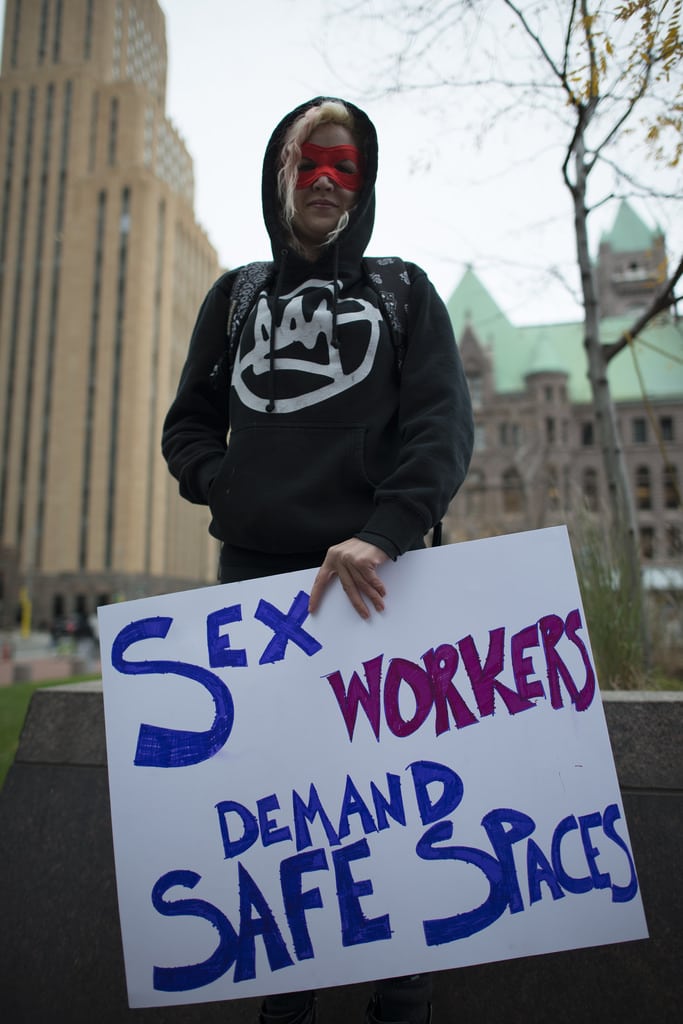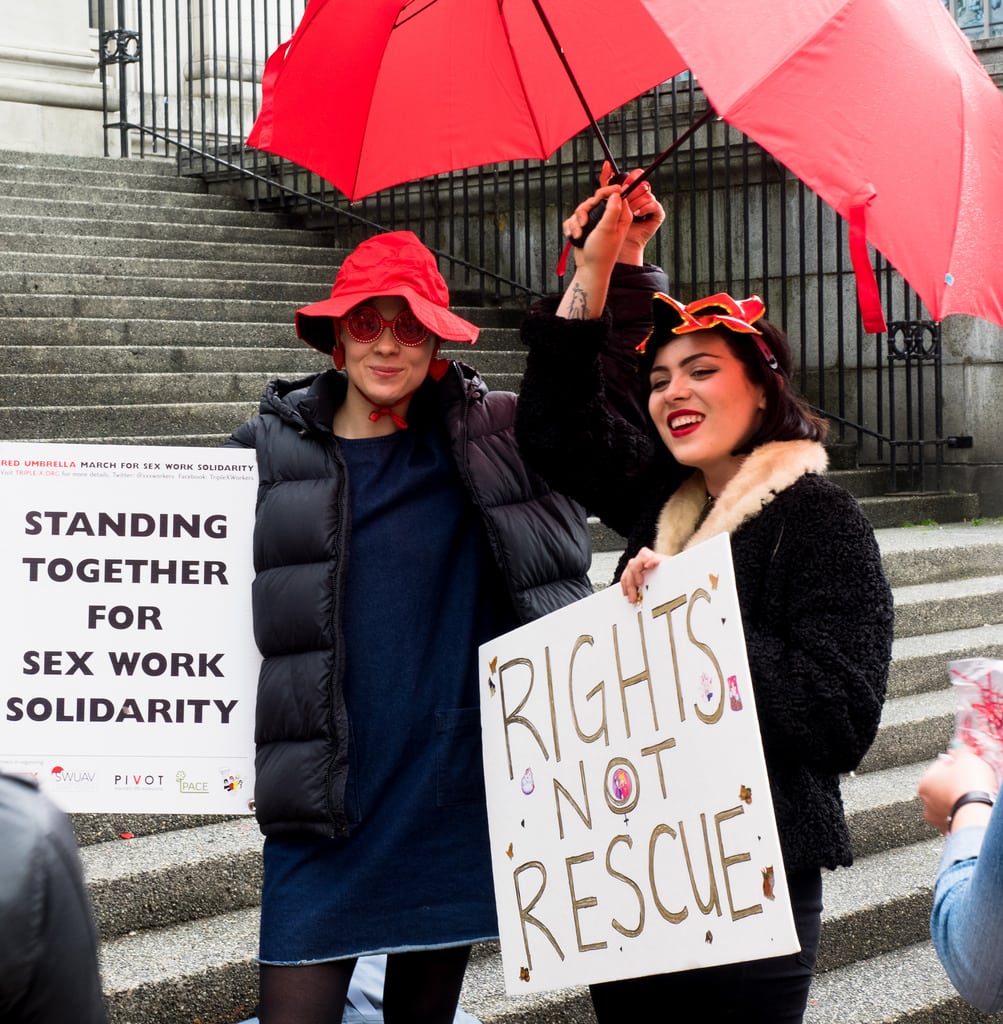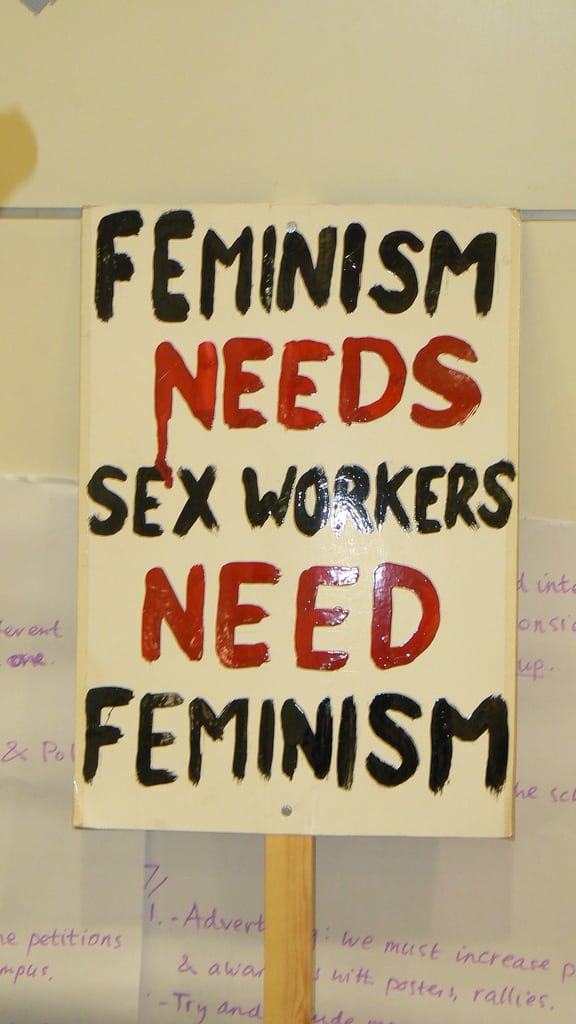Earlier this month, we posted about the SESTA / FOSTA bill. On April 11, President Trump signed the bill into law. On the surface, FOSTA is a law with a noble cause – putting a stop to sex trafficking. However, once one looks deeper into the law, there are some serious concerns about freedom of speech and the well-being of sex workers. To quote our previous post:
The SESTA / FOSTA (Stop Enabling Sex Traffickers Act / Fight Online Sex Trafficking Act) bill “subjects websites to criminal and civil liability when third parties (users) misuse online personals unlawfully” regarding “promoting or facilitating prostitution” even in comments of forum sections. The law is so vaguely worded that even talking about adult work in a non-negative way can be interpreted as promotion, and be subject to criminal prosecution.
Before FOSTA was even signed into law, changes had already begun. Craigslist completely overhauled their Personals section, and sites like backpage.com were taken down. While ending sex trafficking is extremely important, there are some serious flaws with FOSTA that are of concern to the Slutty Girl Problems team and the communities we support and are a part of. We asked three sexperts about SESTA / FOSTA. Here’s what they had to say.
1. How does SESTA blur the lines of sex work and sex trafficking?
Lola Davina, sex worker and author: SESTA punishes both voluntary and involuntary sex work equally, which is unjust. I presume the good people who care about sex trafficking have some compunction about the wellbeing of those who do sex work consensually. Stripping voluntary sex workers of their ability to advertise and share information drives them even further underground, making them more vulnerable to violence and exploitation. Which one might argue is justifiable if there were some proof that strangling sex work-related Internet content drives down sex trafficking; however, nowhere in the SESTA-related debate was that evidence presented. Instead, the most logical result of this law is traffickers will host their sites overseas, business as usual.
Mike Stable, Free Speech Coalition: While SESTA legislation was more specific about the difference, it didn’t get passed. Indeed, the Senate passed H.R. 1865, sex work twitter network, rather than its own more narrowly tailored version, sex work twitter network. SESTA did, in fact, specify that it was focused on coercion. FOSTA does not, including both prostitution and sex trafficking:
This bill expresses the sense of Congress that section 230 of the Communications Act of 1934 was not intended to provide legal protection to websites that unlawfully promote and facilitate prostitution and websites that facilitate traffickers in advertising the sale of unlawful sex acts with sex trafficking victims….
The bill amends the federal criminal code to add a new section that imposes penalties—a fine, a prison term of up to 10 years, or both—on a person who, using a facility or means of interstate or foreign commerce, owns, manages, or operates an interactive computer service (or attempts or conspires to do so) to promote or facilitate the prostitution of another person.
Additionally, it establishes enhanced penalties—a fine, a prison term of up to 25 years, or both—for a person who commits the offense in one of the following aggravating circumstances: (1) promotes or facilitates the prostitution of five or more persons, or (2) acts with reckless disregard that such conduct contributes to sex trafficking.
Erika Chan, writer at ynotcam.com: SESTA blurs the lines between sex work and sex trafficking by conflating voluntary, consensual labor with kidnapping and forced sex-related slavery, trafficking etc. They are absolutely not even remotely related, yet in the eyes of SESTA, there is no difference.
2. How will SESTA impact sex workers individually, and the community as a whole?
Lola: The stated intention of SESTA is to hold Internet providers liable for hosting sex trafficking sites, forcing IPs to shut down sex work related sites. If traffickers can’t advertise, they’ll stop trafficking, I suppose the logic goes? The effect has been to decimate online spaces where voluntary sex workers congregate, advertise, and share dirty trick information. #SurvivorsofSESTA has been keeping a running list of closed sites.
3. What implications will the law have on the adult industry?
Mike: Any site that allows for third-party content, whether that is comments or forums or uploads, now faces the possibility of prosecution for facilitating prostitution. That goes for social networks, advertising sites, dating sites, clips sites, cams, and others. Remember, in 48 states there is no established legal difference between pornography and prostitution, and all it takes is a zealous anti-porn prosecutor to bring charges. Believe me, the will is there. So we’ll likely see platform businesses move overseas, we’ll likely see forums and comments sections shuttered, and we’ll likely see aggressive prosecution at the local level, especially outside of California. We’ll also likely see increased shuttering of sex workers’ accounts on social networks like Twitter, Facebook, and Instagram.
Erika: In terms of the adult industry, many cam platforms and ancillary service providers have already changed their terms of service, limiting some behaviors, services, and language permitted on their sites. Models and performers have also already seen the disappearing of media and records kept on cloud services responding to SESTA fear. These things are already happening and the potential for further limitations is very significant.
4. How will the law affect activist work to keep sex workers safe and protect their rights?
Lola: It will certainly make it more cumbersome in the short term. However, there has already been a sex work twitter network set up, and I’m sure there will be more to follow. I expect that 2-3 years from now, once SESTA has been thoroughly challenged in the courts, and the final implications are fully known, there will be a vigorous, healthy sex worker community online hosted offshore.
Mike: Websites are already shutting down sex worker accounts, and dismantling forums where sex workers talk. Given that we already see massive discrimination around sex work, in housing, in banking, on social media, this is an outrageous and dramatic escalation. Not only does [it] shut down advertising sites, forcing workers offline where sex work is more dangerous, but it takes away spaces where sex workers talk and rally and educate. We’ve already seen shutdowns of forums on Craigslist and Reddit, and rumors of FOSTA-related shutdowns on Google Drive, iCloud and WordPress.
Erika: Already, many spaces where sex workers advertised and corresponded with community members have been shuttered – things like Craigslist’s “Personals” page and various sex work-related subreddits. This is likely due to sites not wanting the exposure of being mis-associated with sex trafficking, which is reasonable (no one wants to be mistaken for any involvement with something as terrible as sex trafficking), but it also makes things more dangerous for sex workers. Sex workers used sites like these to connect with clients and communicate with peers. The loss of these spaces makes things more challenging and infinitely more dangerous for sex workers, and clients too.
5. What advice do you have for those affected by this new law?
Mike: Raise hell. They’re trying to silence us, and we need to shout from the rooftops. In fact, now that it’s passed, we’re finally starting to see mainstream outlets and figures really question it. We need to keep making noise. In the short term, we need to look out for one another. Now is not the time to resort to the whorearchy. It’s not time to say, “Well, I’m not an escort so this doesn’t affect me” or “I’m a producer, so I’m not affected.” We need to realize that an attack on one of us is an attack on all of us, and in fact, all of us are affected. We need a united front.
I’d also say to talk with a lawyer. FSC can’t provide legal advice, so it’s imperative that people take precautions and make connections now. The bill [now law] is broadly and poorly written, so the scary part is we’re not exactly sure what it means in the real world, or how prosecutors will use it. While we hope there will be successful legal challenges, there’s no guarantee — and that may only happen after prosecutions start. Open the lines of communication, because we don’t know what we’re in for.
Erika: All sex workers should look to survivorsagainstsesta.org for information and updates from peers within the community. For webcam models specifically, it’s best to follow the terms of service adjustments being made by various networks and other ancillary platforms (text services, image sharing services, etc). The situation is changing almost minute-by-minute, and companies are invested in not having their platforms shuttered. Though being compliant on an unsettled landscape may be difficult and annoying, while people are working to figure out the full implications of SESTA, it’s better to take setback within the community than it is to allow this misguided foolishness to rip away one’s entire livelihood — though that’s obviously still very possible.





Trackbacks/Pingbacks